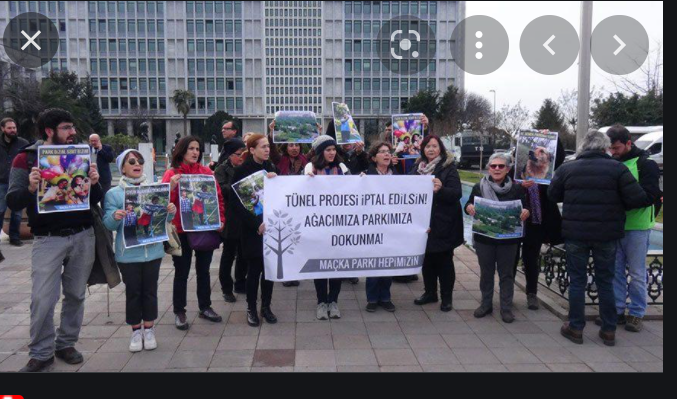Turkey’s cabinet ministers have criticized a European Union court’s decision to allow employers to ban headscarves from their workplaces, saying it is “a blow to the rights of Muslim women” and that it would “grant legitimacy to racism”. The opposition joined the protest, labeling ECHR’s verdict as “unacceptable”. Turkish and European commentators claim that the vague ruling could discriminate against women, as well as raising tensions in the workplace.
Turkey had essentially liberalized the restrictions on the Islamic dress code in police, universities, even the judiciary. Contrary to criticism that secular women will come under peer pressure to adopt the head-scarf, devout and secular women got along very well, usually joining forces in topics like preventing child abuse and child weddings.
WATCH: What do Turks think? Listening to opinion polls
According to the Guardian, the EU’s highest court, the European court of justice (ECJ), on Thursday ruled that private employer can ban workers from wearing religious symbols, including headscarves in their workplaces.
In response, Ibrahim Kalin, spokesperson for Recep Tayyip Erdogan, the Turkish president, tweeted that the move would encourage Islamophobia. “The decision by the European court of justice on [headscarves] in the workplace is another blow to the rights of Muslim women,” he wrote. He said it would “play right into the hands of those warmongers against Islam in Europe” and asked: “Does the concept of religious freedom now exclude Muslims?”
WATCH: Turkey: Losing Her Religion
Fahrettin Altun, Erdogan’s communication’s director, described the decision as unbelievable and “an attempt to grant legitimacy to racism”.
“Instead of denouncing its dark past, Europe now seeks to embrace it,” he said. “We condemn this ruling, which infringes on human dignity.”
The ruling came after two separate cases were brought to German courts by Muslim women who were prevented from wearing their headscarves to work. The first, a childcare worker, was suspended twice from her place of work and issued with a written warning for wearing her headscarf. The childcare center had banned staff from wearing any religious symbols to work.
The second woman, a sales assistant at a chemist, was told not to wear any item of clothing which was considered a conscious political, philosophical or religious symbol. But the worker said that her head covering was mandatory for her religion and refused the chemist’s ban.
The ECJ, said employers needed to show a “genuine need” for the ban, such as the “legitimate wishes” of the customers, including presenting a “neutral image towards customers or to prevent social disputes”.
The issue of the headscarf has been divisive for years across Europe. In 2017, there was a ruling that companies could ban staff from wearing headscarves and other visible religious symbols under certain conditions.
On Twitter, the European Network Against Racism said that the latest ruling would “lead to justifying the exclusion of Muslim women, who are increasingly portrayed as dangerous for Europe, in the collective narrative”.
Follow our English language YouTube videos @ REAL TURKEY: https://www.youtube.com/channel/UCKpFJB4GFiNkhmpVZQ_d9Rg
And content at Twitter: @AtillaEng
Facebook: Real Turkey Channel: https://www.facebook.com/realturkeychannel/
